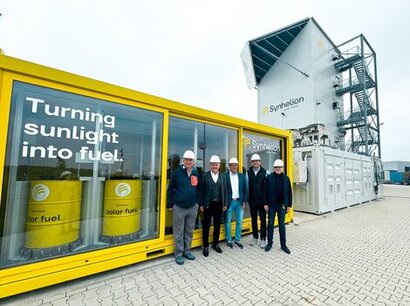
SGV's iconic steamboats, integral to Lake Lucerne's landscape for over a century, were originally powered by coal and later by fossil heating oil. With Synhelion's drop-in solar fuels, they can transition to renewable energy without any engine modifications. SGV has signed a five-year offtake agreement for solar fuels from plant RISE, Synhelion's first commercial plant in Spain, which is scheduled to begin production from 2027.
Solar fuels are synthetic chemical fuels produced from solar energy through photochemical, photobiological and electrochemical reactions, with examples of such fuels being hydrogen, ammonia, and hydrazine. The solar fuels supplied by Synhelion include kerosene, gasoline, diesel, methanol, hydrogen, synthetic crude oil and many others.
“By signing an offtake agreement, SGV is directly supporting the scale up of our solar fuel technology and is a true solar fuel pioneer” said Philipp Furler, Co-CEO and Co-Founder of Synhelion. “This agreement provides not only the need for renewable fuels in the maritime sector, but also the huge emerging market for sustainable fuels.”
Synhelion inaugurated DAWN, the world's first industrial solar fuel plant in Jülich, Germany, in June 2024. The company plans to build its first commercial solar fuel plant RISE in Spain, with a target production capacity of 1000 tons of solar fuel per year. RISE will produce renewable kerosene, diesel, and gasoline and will supply pioneering customers from various transportation sectors.
Image: Michel Scheurer (Head of Nautics, SGV), Stefan Schulthess (Managing Director, SGV), Ronald Perren (Managing Director, Shiptec), Philipp Furler (Co-CEO & Co-Founder, Synhelion), Gianluca Ambrosetti (Co-CEO & Co-Founder, Synhelion) in front of plant DAWN.
For additional information:

